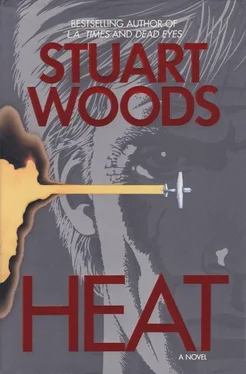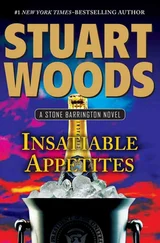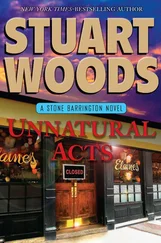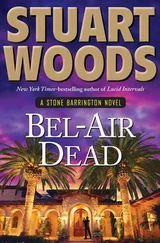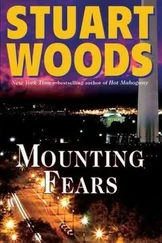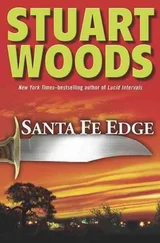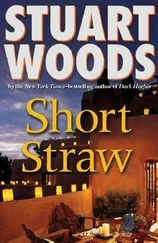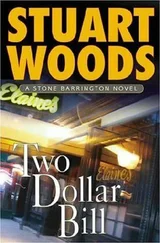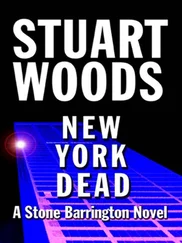“A hell of a lot better than I was a couple of weeks ago,” Jesse replied. “I’m still a little numb in some ways, but I’m getting used to the idea of being a free man.”
“Don’t get too used to it,” Kip said. “Remember, there’s somebody who’d love to see you back inside, if he could get what he wants from you first.”
“I’ll remember.”
“I’ve had word from the lady at the adoption agency. She says that the adoptive parents have your letter, and they’ll think about what to do. It’ll be a long time, of course.”
“I understand. I just want her to know that her mother and I didn’t deliberately abandon her.”
Kip was quiet for a moment. “That phone uses more juice than an ordinary cellular phone; you’ve only got about four minutes talk time between charges.”
“I’d better sign off, then.”
“Keep me posted; if I don’t hear from you at least twice a week, I’ll get worried.”
“Okay, take care.”
“You too.” Kip hung up.
Jesse returned the phone to the safe under the truck, plugged it into the charger and locked up. Back outside, he discovered he didn’t want to go back into the empty house. He wandered in the direction of Main Street, only a couple of blocks away.
The shops were closed now, their windows mostly dark. Only one lighted sign remained on the street: Harry’s. Jesse ambled into the place and stopped inside the front door.
The smell of stale beer and tobacco smoke reached his nostrils, and the sound of pool balls clicking together came from the rear of the long room. Country music was playing on the jukebox. He’d never liked country music. Fifteen or twenty customers, all men, were scattered about the place, some of them watching a sports program on a silent television set above the bar. It was the sort of place he’d avoided all his life.
Jesse walked to the bar and took a stool a little away from anybody else. A man wearing an apron approached.
“Get you something?” he asked.
“A draft,” Jesse said.
The man pulled the beer and set it in front of Jesse. “Passing through?”
“I guess not. I went to work out at Wood Products this morning.”
The man stuck out his hand. “I’m Harry Donner; this is my place.”
Jesse took the hand. “Jesse Barron.” Harry seemed friendly enough.
“Where you bunking?”
“I’m boarding over at Mrs. Weatherby’s.”
“Nice lady.”
“Seems to be.” Jesse sipped his beer. “How long you been in business, Harry?”
“Nineteen years,” Harry replied. “Before that I tended bar in Boise. I come up here and took a job doing the same thing, and a couple years later the boss died, and I bought the joint from his widow. Yours isn’t a local accent; where you from?”
“North Georgia, up in the mountains. I was wandering West, headed more or less toward Seattle, when I happened on St. Clair.”
“You coulda done worse. How’d you end up at Wood Products?”
“I ran into Pat Casey, and he recommended it.”
“Herman Muller’s a good man; he’ll treat you right.”
Jesse laughed. “Well, he just about killed me today.”
Harry smiled. “They put you on the hopper?”
“That’s right.”
“They do that to everybody; stick it out, and Herman’ll find you something better.”
“I’ll do it, if I live.”
Another customer sat down at the bar, and Harry moved to serve him, leaving Jesse alone.
This is what he had never wanted, he thought, sitting in a saloon somewhere crying into his beer. It was just the sort of place his father would have figured him to end up in, he knew, and the thought made the evening even more painful.
Suddenly, he identified the emotion he had been dodging all evening: it was jealousy.
Jesse had known Beth all his life, and since high school he’d never had anything to do with any other woman. She’d been his from the ninth grade on, and he’d never given a moment’s thought to her running off with somebody else. Now Beth was gone, another woman had crawled into his bed and made him happy, and she was out this evening with another man.
What the hell, he thought, he had only just entered her life; she might have had that date for a long time. Why should she break it just for him? Still, that was what he would have wanted her to do.
This jealousy was powerful stuff, he realized, made up of equal parts of anger, pain and depression. He finished his beer and trudged back toward Jenny’s house.
She wasn’t home when he got there, and he turned in quickly. Exhausted, he didn’t hear her when she came home.
Jesse barely made it to work on time. He’d overslept, then had to make his own breakfast. Jenny still hadn’t surfaced by the time he left for work.
He faced the first of the day’s many truckloads of scrap lumber and branches, and occasionally he got a tree limb so big he had to trim it with a brancher, a hooked steel cutting implement fixed to a long handle. He looked upon that work as a welcome break from the monotony of feeding the hopper.
He got through the morning, then at lunchtime discovered that he had nothing to eat; he’d forgotten to fix himself a sandwich. He sat down on a bench in the locker room, too tired and numb to do anything about it.
Harley Waters came in and sat down beside him. “Aren’t you eating anything, Jesse?”
Jesse shook his head. “Forgot to bring something. In a minute, when I get up the strength, I’ll ride into town and pick up a burger.”
Harley handed him a thick, carefully wrapped sandwich. “Take this; my wife always makes me too much.”
“You sure? I can pick up something in town.”
“I’m sure; I still have to deal with a piece of pie.”
Jesse got a cold drink from the machine and sat back down next to Harley.
“Where you from, Jesse?”
Jesse told his story yet again. It came so naturally now that he hardly remembered his real background. “How about you?”
“Been here all my life,” Harley replied. “My grandad worked for Herman Muller’s old man, on his farm. That was a long time ago.”
“You’ve known Herman a long time, then?”
“Oh, sure; I went to work for him right out of high school.”
“Has the business changed much since then?”
“It’s gotten bigger, I guess; Herman’s built it up practically with his own hands. Once in a while he gets an offer from one of the big companies, like Georgia Pacific, but he’s hung onto it. Tell you the truth, after that boy died, I thought he’d sell out.”
“His boy?”
“James, his name was; his grandson, really. Car accident.”
“That’s bad.”
“It was a mess, I’ll tell you. Nobody’s ever figured out who killed him.”
Jesse looked up from his sandwich. “Somebody killed him? An accident, you mean?”
“Well, Pat Casey said it was an accident, but I didn’t like the look of it. He ran off the road coming down the mountain.”
“The one that sort of hangs over Main Street?”
“That’s the one. Kill Hill, they call it; Herman’s boy wasn’t the only one to run off that road. Real steep.”
“This happen recently?” Careful, don’t ask too many questions, he told himself.
“Four, five months ago. Herman was real broke up about it. I thought he’d sell.”
“He’s had a lot of offers, huh?”
“Three or four. Latest one was...” Harley looked up to see another workman walk in. “Well,” he said, standing up. “I’ll see you.”
“Thanks for the sandwich,” Jesse said. He watched as the other man sat down on a bench across the room. He was a big one, six-four, maybe six-five, heavy-set.
“You’re the new fella,” the man said.
Читать дальше
